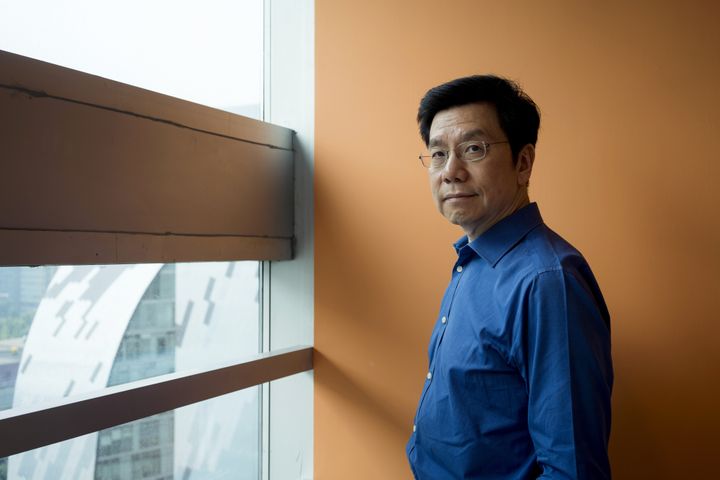 AI Startup Values Have Slid by 30% and Could Fall Further, Kai-Fu Lee Says
AI Startup Values Have Slid by 30% and Could Fall Further, Kai-Fu Lee Says(Yicai Global) Sept. 3 -- The value of a host of artificial intelligence startups has sunk by 20 to 30 percent in the past three or four months, and might fall by the same amount again, according to renowned Chinese venture capitalist Kai-Fu Lee.
"In a rational market, especially in a market with less capital than before, valuation adjustments and the disappearance of over-hyped firms are actually very good things for the environment as a whole," Lee, who was once president of Google China, said at a press briefing yesterday.
Many AI companies are overvalued, so it is important to be cautious when investing in the sector, he added. "The current entrepreneurial environment is one where when any concept becomes particularly popular, it will soon be played badly," he said.
Entrepreneurs all want to build their image by employing talent from Google and Baidu, or researchers from the likes of Stanford and Tsinghua, Lee added. While investors all want a slice of the AI sector, however large the share. It is akin to the pattern in the online-to-offline field, where entrepreneurs did whatever investors told them, he said.
Sticking Around
Despite the declining values, AI is hanging about for the long term, Lee said. He has become an evangelist for the technology and believes that within 15 years it will be capable of carrying out as many as half of human jobs -- so it is a topic he thinks needs talking about.
AI can bring about great rewards quickly, he continued, but pointing out that as it also has the potential to take jobs, there is a problem that needs to be solved.
Lee envisions the AI sector developing through four stages: internet intelligence, which has already been achieved by the likes of Baidu, Alibaba and Tencent; business intelligence -- transforming data into business value; real-world intelligence, like identity verification and unmanned shops, and automotive intelligence.
The third phase will completely change the way people interact with the environment and blur the boundaries between the digital and physical worlds, he said.
Clash of the Titans
China and the United States will emerge as the sector's leading markets, and they need to cooperate to effectively solve issues that AI brings with it, Lee added.
America has more experience in research and more applications for AI than any other country , he said. It also has prestigious colleges and encourages independent research, making it a land of promise for AI research, Lee added.
But China has advantages in other aspects -- execution, product quality, speed and data are becoming more and more important in the sector, and China is stronger in these regards, Lee continued. Data is one of the country's biggest strengths, as it has so much of it, he said, pointing out that China has three times as many mobile phone users than the US, receives 10 times as many takeout orders every day, conducts 50 times as many mobile payments and has 300 times more shared-bike riders.
Another of China's merits is innovation, he continued, saying China has caught up with the States and the pair are now world leaders in the field. The brutal Chinese market has also nurtured a bunch of devoted, diligent and decisive entrepreneurs, Lee said.
Chinese AI startups picked up 48 percent of all sector funding last year, beating America for the first time and coming out 10 percentage points on top, according to data from venture capital analyst CB Insights.
Lee also believes the Chinese government's pragmatic approach to technology will work in the nation's favour. It is infrastructure construction as much as money that is proving beneficial -- China has a high-speed rail network and a powerful 4G network, and is working on support for AI, such as in autonomous vehicles.
It may never occur to America to build a new city dedicated for self-driving vehicles, Lee said, whereas China has built Xiong'an New Area and plans to make autonomous cars available there.
China has built Xiong'an New Area as a city for autonomous vehicles, but it may never occur to America create a new city for self-driving cars, he added. The US is also receiving opposition in the sector, with labor union the International Brotherhood of Teamsters pushing back against autonomous truck testing.
Editor: James Boynton